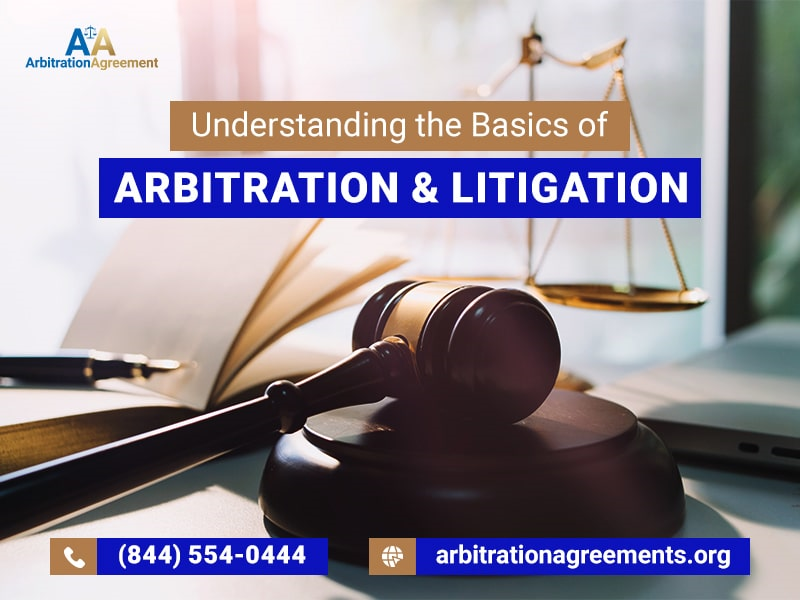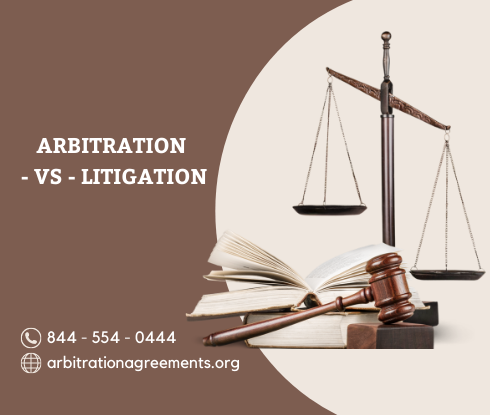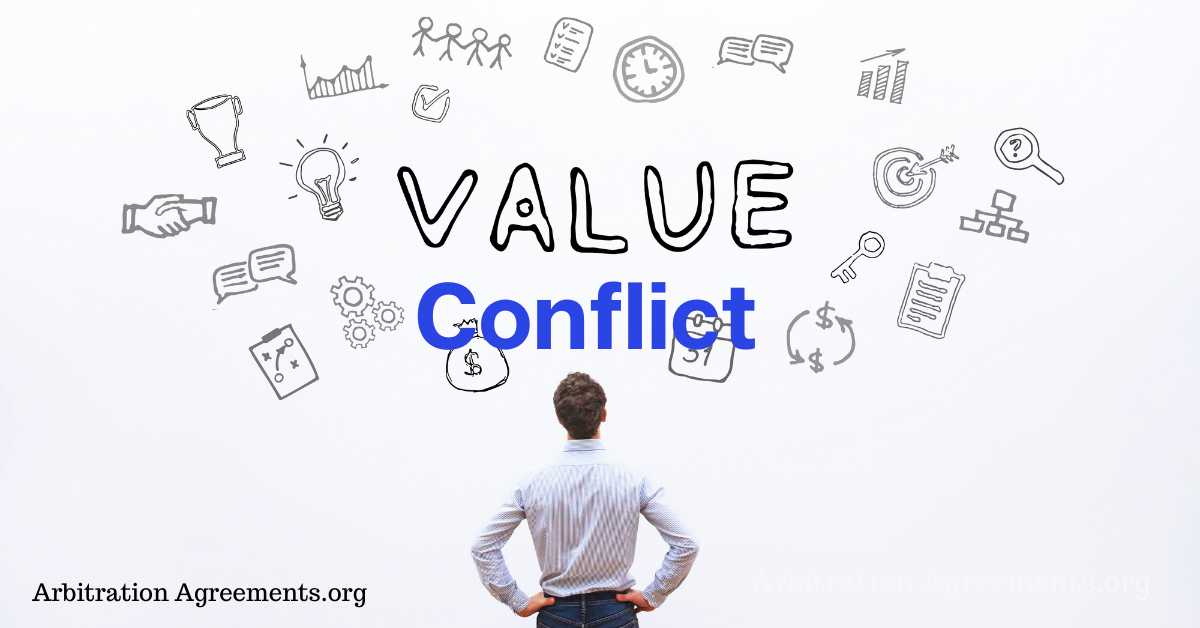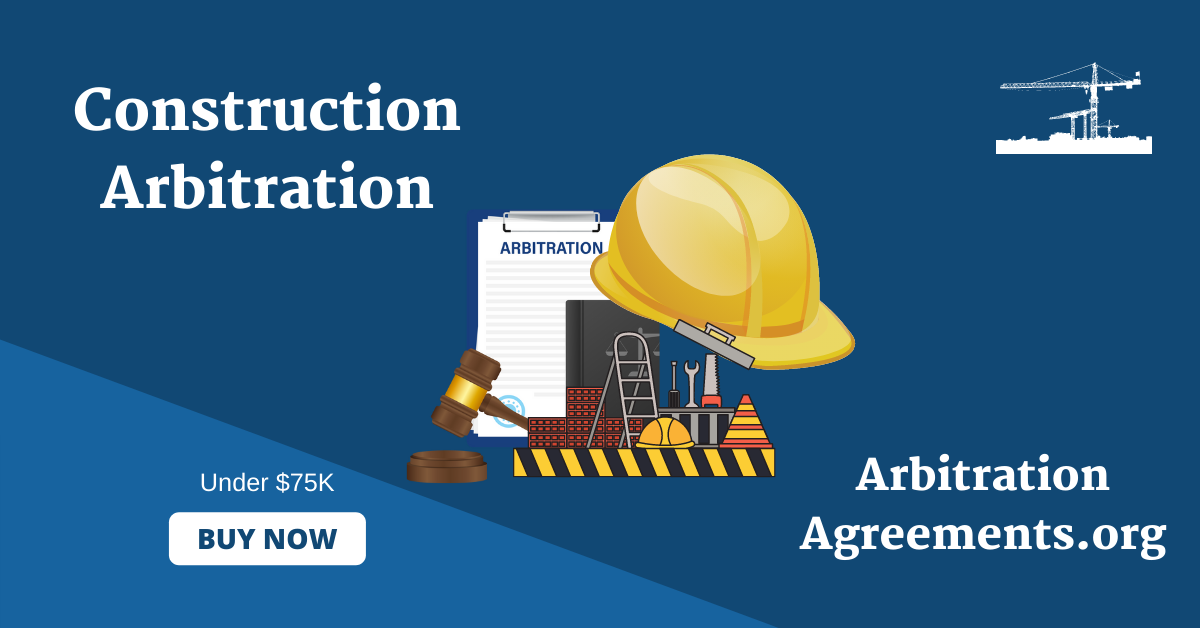Arbitration vs Litigation: Understanding the Basics of Arbitration & Litigation
Arbitration vs litigationis a common dispute resolution talking point. Many legal experts, business professionals, and consumers prefer arbitration. Arbitration can be a much more flexible process and gives the two That’s because it’s cheaper and faster on average than litigation. So that we can understand arbitration vs litigation, let’s first define both terms.

What is Arbitration? How differ from Litigation Arbitration
Arbitration is a popular type of ADR
Alternative Dispute Resolution. The process involves both parties coming together to present evidence to an arbitrator. The parties must follow and respect an arbitrator’s decision. That decision is binding by the law. (The only exception is when a dispute decision has non-binding legal status.) When it comes to disputes, arbitration replaces the act of filing a lawsuit and going to court. Must read theFederal Arbitration Act. The majority of arbitrators are attorneys. They have familiarity with the field of law that each dispute applies toward. Arbitration and litigation are distinct legal processes. Unlike litigation, where disputes are resolved in court through civil litigation, arbitration involves a privatearbitration association. Thisinternational arbitration method offers a more flexible, streamlined arbitration process.
Every arbitration decision has a binding status that applies to all parties.
(Non-binding arbitration is the only exception.) You can appeal an arbitration decision only under rare circumstances. So, what are the odds of overturning the decision or resolution? The odds of doing so in law are rare. An arbitrator must make huge mistakes. Keep in mind that arbitration is a private type of settlement between parties.
How does theDefinition of Arbitrationin Economics Apply to Arbitrationhearings?
Unlike US court cases, the information gets kept confidential once disputes conclude. Plus, mandatory arbitrationis cheaper than going through the court system with lawyers. Most arbitration cases get a dispute resolved within weeks or months. Meanwhile, lawsuits can drag on for years. While litigation and arbitration can be mandatory, arbitration may be preferred due to its efficiency. It often includes mediation and arbitration, which can lead to arbitration awards that favor parties looking for a quicker, less adversarial resolution over litigation. American arbitration institutions play a pivotal role in this alternative dispute resolution landscape.

What Is Litigation? How differ from Business Litigation
Litigation refers to the process of going to a US court to resolve a dispute between parties.
It functions as a formal legal proceeding. In the ever-evolving landscape of business disputes, the choice between arbitration and litigation has become a new frontier for risk management. Attorneys at Hirschler Fleischer, well-versed in legislation, help businesses weigh their options. Shareholders and stakeholders seeking swift resolution may opt for arbitration with its do-it-yourselfatmosphere and speedy proceedings. The goal of litigation is to defend or enforce some form of legal right. Through the legal process, the dispute or case gets brought to court. That’s where a judge presides over the parties. (The judge gets appointed by a court to serve as a litigator.) A judge will provide a verdict after viewing evidence and listening to all arguments. That veridic functions as a legal decision and resolution. But that legal decision and resolution can almost always get appealed.Interest Arbitration and The evidence and arguments get presented by attorneys at law for each party. Visit & learn about ADR.
See Example ofMandatory ArbitrationProvisions.
Say that a party in a dispute doesn’t agree with a court decision. The party can seek legal justice with the decision by appealing to a superior court. (As long as certain legal conditions apply.) US courts have formal law processes for settling all types of conflict. However, getting involved with these litigation processes often costs a lot of money. That’s the number one reason why many people prefer arbitration over litigation. (And also over mediation.) Must check outArbitration vs. Mediation.

Arbitration vs Litigation: 8 Key Differences Between Arbitration & Litigation
You now know the basic definitions of the two key terms: arbitration and litigation. So, let’s go over the differences between these two ADR arbitrationconcepts. If you have any questions, do not hesitate to contact our organization. Our experts can supply you with any type of arbitrationinformation that you need. Also, let us know if you have any questions about mediation and arbitration. Arbitration is a popular method of dispute resolution. Arbitration is a private process, whereas litigation is a public
Arbitration vs Litigation Difference #1: The Time of Each Case
Legalforced arbitration processes are almost always faster than litigation proceedings. If you want to receive a fast resolution to your case, arbitration is the route to take. Plus, the right to appeal an arbitration award/decision is very limited. This prevents having to take part in an appeal process and hire an attorney at a practice. 294-SFS In San Antonio, mandatory arbitration in law firms is a binding arbitration process, differing from traditional litigation. This alternative resolves disputes privately, safeguarding mental health and privacy.
Litigation appeal processes can sometimes drag on for years.
It’s not because of the actions of a jury or attorney. Litigation has always been a slow dispute-resolving process. TheArbitration Association can help you with more about this. On the other hand, litigation, a cookie-cutter approach in some cases, offers a more comprehensive examination of the cause of action, albeit at a potentially higher cost. Understanding the nuances of contract clauses, as advised by FindLaw, is crucial when navigating this critical decision in the business world.
Arbitration vs Litigation Difference #2: Flexibility
Through court litigation, there are many procedural and statutory rules and terms of the law. That is not the case with arbitration. In arbitration, the parties can create certain rules and limits with arbitrators. This takes place during the pre-hearing exchange of documents. It can also happen during an interrogation of witnesses. Know about the Process ofMutual Arbitration. Arbitration is a versatile method for resolving disputes across various industries, including sports and trademark matters. Its efficiency and nature make it an attractive option.
Many people love the flexible nature of arbitration.
Getting to create unique rules creates a relaxed, less formal atmosphere. Compared to litigation, arbitration provides parties with way more flexibility. Plus, there is no jury in the arbitration dispute process. Click and learn about thePre Dispute Arbitration Clause. An arbitrator serves as the jury in each case. This can put pressure on any attorney or legal counsel in a practice.
Arbitration vs Litigation Difference #3: Cost (Not Only the Cost of Lawyers)
Court litigation is almost always a more expensive legal process thanarbitration provision. And that’s not only because hiring a lawyer from a practice costs a lot. So, why is the arbitration decision dispute process cheaper when it comes to law? Well, for one, arbitration features a compressed schedule. This makes both the arbitration discovery and trial process conclude fast. Parties involved negotiate terms, and the written award gives a clear answer. In contrast, litigation can be a lengthy pursuit with resolutions determined by the court. When deciding, it's essential to discuss and carefully look into which avenue aligns best with your needs.
There are many court litigation expenses involving pre-trial discovery processes.
(That’s where the legal fees with lawyers from a practice come into play.) Witness depositions and written interrogatories serve as two common examples. Know What isfinal offer arbitration. Do you want to resolve your law-related dispute without having to pay a fortune? If so, arbitration is your best bet. Sometimes, you don't even need a lawyer for arbitration. But it might appear best to hire lawyers on both sides of a dispute. This way, you can understand the law with ease.
Arbitration vs Litigation Difference #4: Note That Judges and arbitrators Are Not the Same
Note that the fairness of adjudication depends on the quality of a trial judge or arbitrator (But not that of the lawyers.) In arbitration, parties get to choose the arbitrator(s). know about the Arbitrator Selection Process LargeCase. All pre-hearing disputes are decided by the same arbitrator(s). Those exact arbitrator(s) will then decide each case. This law process contrasts with litigation proceedings. Arbitrations address misrepresentation in cloud technology, offering a reason and efficient legal solution, a modern approach to resolving complex issues.
What Should Go Inside an Arbitration Clause?
In the majority of courts, an individual judge does not get assigned to a case. Instead, more than one judge gets involved in adjudicating pre-trial disputes. Parties have no say in which law-minded judges get assigned by a court. This leads to another key advantage of arbitration. The parties can select the arbitrator(s). Meanwhile, parties can never select a judge during the court litigation process.
Arbitration vs Litigation Difference #5: Experience & Expertise
Arbitrators get selected from a pool of industry-minded professionals to find a resolution. Here is an example ofarbitration lawat play. Say that there’s a construction industry-related dispute. The parties can select arbitrators with relevant experience. That experience is not in law. Instead, it’s in the construction industry. This is not the litigation case. Parties could never select a judge from a pool of judges with construction knowledge. Arbitral tribunals often have a greater capacity to comprehend certain issues and evidence. That’s one reason why arbitration trials conclude faster than litigation proceedings.
Arbitration vs Litigation Difference #6: Rules of Evidence & Law (Using a Lawyer)

In litigation, a judge’s resolution or decisions get constrained by the law. This involves all sorts of past laws and legal precedents. The conduct of a court trial is governed using specific rules of evidence by the law. This is not an arbitration case. An arbitrator has the flexibility by the law to consider evidence in any form or manner. Know here about AFA.
The arbitrator can decide for himself or herself what’s relevant throughout arbitration, Federal Arbitration Act.
Then, the arbitrator can provide an award based on unique principles of fairness. Once again, speed is at play throughout the law andarbitration process. Not adhering to certain rules of law leads to arbitration cases concluding faster. Whether in litigation or arbitration, it’s often best to have access to a lawyer. A lawyer can help you interpret the law with ease. This can save time and reduce stress. Know here Practical Guide pdf.
Arbitration vs. Litigation Difference #7: Note the Differences of Consent
Parties only take part in arbitration when they agree to do so. (Like when they sign aBinding arbitration agreement .) You cannot force a party in a dispute to join any arbitral process. Litigation proceedings differ. In court proceedings, sometimes parties have no choice but to join. Even minor entities involved in a dispute often have to get involved. However, through arbitration, every party and entity must first provide consent. Also, visit at Judicial Panel.
Arbitration vs Litigation Difference #8: Appeal Rights
An arbitration decision or award always becomes binding and final. Contact us for theMandatory Arbitration Clause. Parties (and each lawyer) have a very limited right to appeal a decision. It must appear obvious that an arbitrator has made a mistake in relation to fact-checked or the law. Sure, it’s also difficult to reverse trial court verdicts. But parties can appeal decisions with much more ease.
Is Arbitration Better Than Going to Court? As arbitration
When Is It Best To UseConciliation? Many legal experts assert that, yes, arbitration is better than going through litigation. One key reason is cost. Arbitration almost always saves disputing parties a lot of money. That’s because the schedule for discovery, evidence, and trial gets so compressed. Arbitration also gets preferred due to parties having the ability to select arbitrators. This way, people with relevant industry knowledge can preside. An arbitrator does not need to have experience as a lawyer. Want to know What isArbitration Contract? Arbitration is a way of resolving a legal dispute outside of the court system. Must visit at document repository.
What Are the Advantages of Arbitration Over Litigation?
Know aboutarbitration meaningin detail. There are three keyadvantagesthat arbitration has over litigation. First off, there is a cheaper cost. Then, you've got the notion of flexibility. Arbitration proceedings are more relaxed and laid-back compared to court litigation. So, what’s the third key advantage of arbitration over litigation? Privacy.Arbitral awardsgiven by an arbitrator are almost always non-public. This can protect parties from embarrassment and/or bad publicity. Arbitration is known for being considerably faster than litigation arbitration is usually faster, cheaper, and more flexible than litigation
Can You Still Sue After Arbitration Using a Lawyer?
No, you cannot sue the other party once arbitration proceedings conclude. The only exception is when you've taken part in non-binding arbitration. Arbitration replaces the entire litigation (and lawsuit) process.Arbitration vs Mediation vs Litigationthree are the most important terms. The arbitration process fosters a more amicable agreement with less anguish and
Who Pays the Arbitration Cost?
If you are an employee, check employment arbitration. Parties often split the costs of arbitration in a 50/50 manner. This applies to more than paying each arbitrator. It also relates to costs like abeyance fees and hearing room rental fees. Keep in mind thatarbitration cost is almost always cheaper than litigation. Arbitration tends to be more efficient than pursuing. the out-of-court resolution of a disagreement between two commercial parties decided by Arbitration versus litigation
We Can Direct You to Full-Scale Arbitration Services
Does your business need help accessing arbitration resources? If so, our organization can give you more than arbitration information. We provide full-scale arbitration services to businesses across the US. From California to Colorado to New York. No matter where you need to understand the arbitration process, we’re here for you. As you can see, litigation vs arbitration is no contest.
Almost every business in the nation prefers arbitration.
That’s because arbitration is more practical. Having a shorter case time frame leads to saving money on legal costs. You won’t need to pay an attorney for years on end. Plus, each party can share evidence with arbitrators with ease. Now that you know arbitration benefits, it’s time to receive the solutions. And that’s where our arbitration professionals can assist. arbitration will be the preferred method of resolving a legal dispute
arbitrations
If you need a certain arbitration service, all you've got to do is pick up the phone and call ourarbitration agreement association. We can direct you to anything related to abrasion. There are two different ways to settle legal disputes From an arbitrator tribunal database to introducing a new dispute resolution process. We’re ready to share our arbitration resources with you today. As you can see from the evidence above, arbitration is effective.
Point blank, it’s the best process for solving almost any complicated matter.
From a consumer or business dispute to a resolution for a personal disagreement. Many people say the decision to go through arbitration changes their lives. One party is typically awarded money. The process is so simple and stress-free that they can’t believe it’s part of the law. Well, when it comes to all services of law, our organization is number one. Know about the Sample Arbitration. We’re ready to assist you with all aspects of arbitration at any moment.









